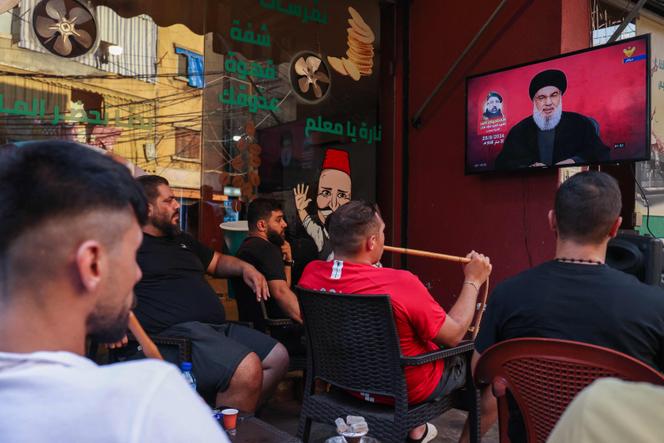


On Sunday, August 25, Israel and the Lebanese Hezbollah engaged in a conflict weighed down to the trebuchet. This is, of course, because of the size of the territory − southern Lebanon − where Israeli air force strikes were carried out, while at the same time, Hezbollah launched a salvo of rockets and drones in the direction of Israel from an area just a few dozen kilometers long. It was also due to the growing difficulty for each of the protagonists to escalate the situation without launching an open war, which would set the region ablaze.
Details about the Israeli strikes and Hezbollah fire that began at dawn on Sunday emerged throughout the day. While Israeli army spokespeople initially mentioned a figure of "several thousand Hezbollah launch pads" targeted by the air strikes, this figure was revised down to several hundred over the course of the day. According to army spokesperson Rear Admiral Daniel Hagari, 90% of the targets were rocket launch sites intended to strike northern Israel. Hezbollah reportedly succeeded in launching only 230 rockets and around 20 drones. According to Hagari, a "vast majority" of these were intercepted.
Some 100 Israeli aircraft were used to carry out these operations, described by the army as "preventive." Everyone expected Hezbollah to retaliate after the Israeli strike on Beirut on the evening of July 30 that killed Fouad Shukur, one of its senior military officers. What was most surprising, in the end, was Israel's ability to know precisely when Hezbollah was going to launch its attack, as well as the scale of its own air operation.
"It's enormous," said a well-informed Western source. Putting so many planes in the sky in such a short space of time, probably in two waves, and coordinating their action over such a small territory, is in itself a real show of force, even if the precise effects of the strikes on Hezbollah's arsenal remain unclear. The message is also addressed to Iran, which has promised to retaliate after the assassination in Tehran of Ismail Haniyeh, head of the Hamas political bureau, on the night of July 30-31, just a few hours after the elimination of Shukur in Beirut.
"The end of this episode firstly confirms that none of the parties wants to start an all-out war or, at the very least, bear responsibility for its outbreak," analyzed a Western source. "The other lesson is that Israel inflicted a real humiliation on Hezbollah by carrying out a strike even before its own retaliation was launched." According to a diplomat, as soon as the attack was over on Sunday morning, "each side sent the message to the other that it wanted to leave it at that." What happens next is unpredictable.
You have 69.78% of this article left to read. The rest is for subscribers only.
